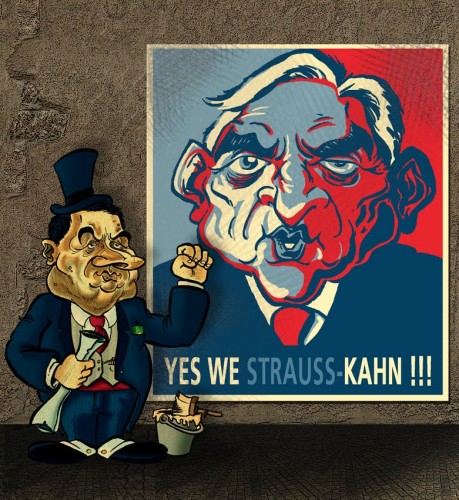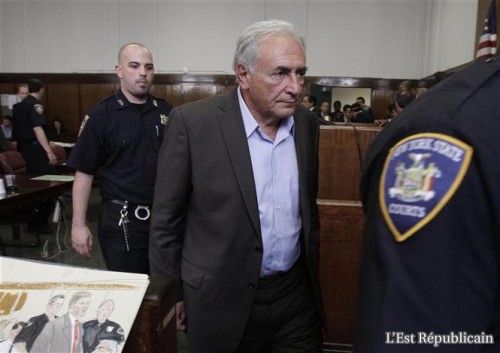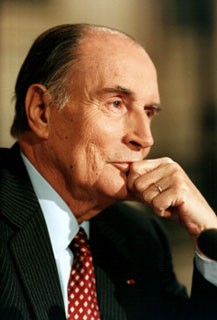Thierry Vanroy
Ex: http://watjezegtbenjezelf.wordpress.com/
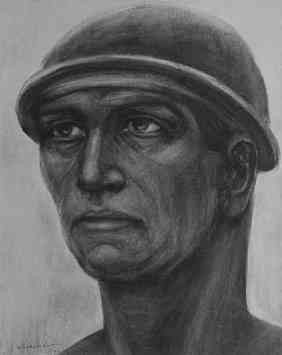 Zoals beloofd zou ik een artikel schrijven over ‘mijn’ nationalisme. Flink wat denkwerk is hier overheen gegaan en de ambities zijn enigszins verlegd naar een persoonlijk manifest. Met excuses voor de lengte en op het risico af mijzelf onherroepelijk controversieel te maken, hoop ik hier desalniettemin een lans mee te breken. Geen betere plaats dan WJZBJZ voor een dergelijke tekst te lanceren, lijkt mij alleszins.
Zoals beloofd zou ik een artikel schrijven over ‘mijn’ nationalisme. Flink wat denkwerk is hier overheen gegaan en de ambities zijn enigszins verlegd naar een persoonlijk manifest. Met excuses voor de lengte en op het risico af mijzelf onherroepelijk controversieel te maken, hoop ik hier desalniettemin een lans mee te breken. Geen betere plaats dan WJZBJZ voor een dergelijke tekst te lanceren, lijkt mij alleszins.
***
“But, if constructing the future and settling everything for all times are not our affair, it is all the more clear what we have to accomplish at present: I am referring to ruthless criticism of all that exists, ruthless both in the sense of not being afraid of the results it arrives at and in the sense of being just as little afraid of conflict with the powers that be.”
Karl Marx – Deutsch-Französische Jahrbücher, 1943
I. Het mondialisme
Laat ons het verhaal beginnen bij de alombekende links/rechts tegenstelling. Aan de rechterzijde vinden we twee groepen, ‘rechts’ van de moraliteit van waarden (traditioneel, integralistisch…) en ‘rechts’ van de immoraliteit van liberalisme (winst boven alles, asociaal, decadent…). Wat daar zo potsierlijk aan is, is dat zij een monsterverbond sluiten tegen ‘links’. En wat al even potsierlijk is, ‘links’ sluit exact hetzelfde monsterverbond tegen ‘rechts’. Potsierlijk, omdat het resultaat hoe dan ook de overwinning is voor het onderliggend verbond van financieel en supranationaal rechts (supranationale instellingen, dictatuur van het geld) en liberaal en supranationaal links (‘antifascisme’, ‘antiracisme’, dictatuur van de moraal). Dit verbond is een systeem, dat een agenda genaamd ‘mondialisme’ vervult. (Niet mondialisering overigens, dat is een materiële en immateriële uitwisseling als gevolg van technologische vooruitgang, het is niet mogelijk en zeker niet wenselijk daar tegenin te gaan.)
De enige manier om uit dit mondialisme te stappen, is door een nieuw systeem, een nationaal verbond van links van de arbeid en rechts van de waarden. Dit nationalisme (in de zin van niet-mondialisme), is dus gelanceerd vanuit een objectieve systeemanalyse, in tegenstelling tot de meer courante emotionele dwaalsporen. Men kan het ook patriottisme noemen, of gewoon revolutionair, maar dat is semantiek. Daarmee begrijpt men mondialisme nog niet, noch de concrete invulling van dat nationalisme (de maatschappijvisie). Daarom moet eerst de psychologie van het mondialisme duidelijk worden.
Wat volgt zijn enkele verklarende fundamenten, bewust essayistisch om een vermoeiende aaneenschakeling aan becijferde feiten en bevleugelde citaten te vermijden. Dit betekent echter niet dat de auteur een einzelgänger is die denkt het warme water uitgevonden te hebben, vanzelfsprekend kan hier de nodige ruchtbaarheid aan gegeven worden en vindt dit de nodige raakvlakken met de stromingen in de onderbuik van de maatschappij.
Schizofrenie van links
De schizofrenie van links is tweeledig. Ten eerste, een trotskistisch misprijzen van de autochtoon, anderzijds de immigrant hooguit stiefmoederlijk behandelen (racisme van links) omwille van diezelfde ideologie. Ten tweede, enerzijds ‘solidariteit’, anderzijds pro-immigratie, terwijl immigratie een antisolidair economisch fenomeen is. Belangrijk is dan ook een onderscheid te maken tussen immigratie en diversiteit, een nefaste verwarring vandaag de dag.
Immigratie bijt in de hand die hem voedt. Het door immigratie gecreëerde arbeiderssurplus en de welvaartstaat sluiten elkander uit. Dit niet omwille van een (nietbestaande) islamisering of gettoïsering, maar vanwege de eenvoudige logica dat immigratie een druk op de lonen en sociale zekerheid legt en de concurrentie op de arbeidsmarkt verhoogt. Dit is de agenda van economische immigratie (is er een andere vorm?) en dit raakt dus óók de ‘oude’ immigrant. Daarom dat diversiteit (komt later aan bod) hier los van staat.
Deze schizofrenie heeft van links de nuttige idioten van het mondialisme gemaakt. Zij verdelen de gemeenschappen, ook de allochtone, in dienst van sociale fragmentering. Zo zal je hen moslima’s zien recupereren via een reactionair feminisme in de naam van emancipatie, wat de uitgesloten moslims dan weer aanzet tot een al even reactionair machogedrag.
Stelling: Het antwoord van links strookt niet met de economische en maatschappelijke realiteit.
Het individu en de illusie van verdraagzamen tegen onverdraagzamen
Maken we twee veralgemeniseringen, je hebt enerzijds de burgerlijke wereldverbeteraar, een vriendelijk, verdraagzaam schepsel, maar een dat tegelijk zelfbevredigend is, met een onuitstaanbare pretentie. Anderzijds heb je diens alterego, die prat gaat op welk logo waar hangt en wat welk kleurtje draagt. Die zich openlijk – met wisselende subtiliteit – ergert aan k*tmarokkanen & theedoeken of (respectievelijk) blonde hoeren & haakneuzen. En zich zo de rol van ambassadeur der ‘Nederlandse identiteit’ of (respectievelijk) de ‘Marokkaanse/… identiteit’ aanmeet.
Hoewel twee individuen elkanders beste vriend kunnen zijn, zullen zij op communautaristisch (‘hokjes’) niveau elkaar verraden. Dat is de schizofrene situatie waar we toe aangezet worden. En men zal het niet snel van zichzelf willen toegeven, maar ondanks dat Henk en Fatima als werkcollega’s een goede synergie maken, behoren zij als individuen tot twee gemeenschappen (‘netwerken’) die tegenover elkander gepolariseerd worden, ook als Henk wereldverbeteraar is.
En daarmee wordt meteen aangetoond dat ‘tegen hokjesdenken zijn’, identiteit ontkennen en met ‘verdraagzaamheid’ te koop lopen mooie intenties zijn, maar het individu atomiseren en hem zo de kracht ontnemen te denken, te voelen en te reageren.
Stelling: De enige twee officieel erkende gemeenschappen, de natie en het individu, zijn tegelijk de enige die vandaag niet bestaan. De natie omdat het niet een verbond van nationale netwerken is, het individu omdat het zonder banden, zonder netwerk, geneutraliseerd is.
Communautarisme: infantilisering van de identiteit
Communautarisme (in de Franstalige zin, zie verder) is typerend voor de infantilisering van de massa, die via deze praktijken verder in het mondialisme geduwd wordt. Wij fragmenteren ons immers steeds verder in uitgekristalliseerde identiteiten op basis van symbolen en uiterlijkheden. Dit zijn oppervlakkigheden zonder diepgang, op basis van urbane/exotische/historische/… (schrappen wat niet past) folklore, verhuld onder het mom van (een beeld van) wereldburgerschap/traditie/uniek zijn… (opnieuw, schrappen wat niet past).
Het mondialisme heeft dit nodig. Identiteiten moeten oppervlakkig zijn, fragiel, en zeker niet integralistisch (lees: jezelf serieus nemen). En zo is er eigenlijk weinig verschil tussen de nostalgische impulsen van de identitair en de progressieve impulsen van de wereldburger. Zoals pornografische impulsen staan tegenover het geslacht voortzetten, zo staat couscous tegenover wereldburgers, zo staat varkensvlees tegenover identitairen.
Zo staat populisme tegenover (antimondialistisch) nationalisme.
Stelling: De oppervlakkige fragmentering van gemeenschappen leidt tot het inruilen van de wil door impulsieve verlangens, wat voornamelijk het consumentisme in de hand werkt. Geen enkel product van het mondialisme kan zo ingaan tegen haar schepper.
Antifascisme: indoctrinatie en chantage
Antifascisme zonder fascisten, dat op de spoken van de Tweede Wereldoorlog teert en in feite het monsterverbond tussen communisten (thans politiek geliquideerd en overgenomen door manisch trotskisme) en liberalen bestendigt. Reductio ad hitlerum, waarbij de gaskamers de plaats van Jezus Christus moeten innemen. Dat er een zekere bescherming mag zijn voor een groep die historisch onderdrukt is geweest, akkoord. Maar dat zij de Holocaust als voorwendsel misbruiken voor zelf een pertinent racistisch beleid te voeren, dat is het summum van perversie. En deze perversie is endemisch geworden, daar het ons chanteert tot een keuze te maken tussen mondialisme en Auschwitz. Een keuze die niet in vraag mag worden gesteld, maar evenwel geen steek houdt.
Stelling: Antifascisme is een instrument van de mondialistische indoctrinatie die, ondanks dat de economische feiten op tafel liggen, de electorale macht in handen van supranationale belangen gegijzeld houdt. Dit is de dictatuur van het kapitaal door valse moraliteit, dat de ware exploitatie en proletarisatie van de bevolking betekent in de 21ste eeuw.
Antiracisme: de diversiteitsleugen
Antiracisme zonder racisten en populisme zonder populus (volk), zij zwengelen de etno-religieuze spanningen aan door de maatschappelijke problemen te etniciseren. Blank tegen bruin, zelfs al zitten zij beiden onderaan de sociale ladder. Een antiracistische haat die tot racistische haat leidt, daar de ‘blanke’ zich onrecht aangedaan voelt en de ‘kleurling’ in de ‘blanke’ de eeuwige onderdrukker ziet. De strijd van de nationale arbeid tegen het mondiale kapitaal gaat in deze constructie verloren aan beide kanten.
Hieruit ontspringt dan ook een nieuwe vorm van racialisme, de mixologie. Dit is geen vermenging van het beste van twee werelden, dit is de vernietiging van alle culturele barrières door een geforceerde melting pot, opnieuw een product van het mondialisme. Dit is het echte kolonialisme, het mondialisme koloniseert iedereen. Wie nu overigens denkt dat men racist is door anti-antiracistisch te zijn, die heeft niet goed gelezen. Antiracisme is niet tegen racisme zijn, het is een autoritaire visie van wat racisme is en hoe we het zouden moeten bestrijden, ten koste van onszelf. Antiracisme is racistisch!
Ditzelfde antiracisme ligt ook aan de basis van het bovenvermelde communautarisme, het is de verantwoording voor een beleid waarin zichtbare ‘minderheden’ gepromoot worden (vrouwen, jongeren, holebi’s…), maar enkel om ze compatibel aan het mondialisme te maken. Is er immers een reden dat financiële en politieke steun uit moet gaan naar groepen die zich als ‘emanciperend’ neerzetten, terwijl zij overduidelijk niét als legitieme vertegenwoordigers kunnen worden beschouwd? Bijvoorbeeld, zijn de deelnemers aan de Gay Pride parades representatief voor de gewone, geïsoleerde holebi’s van middelbare leeftijd met vaak financiële en psychologische problemen omwille van hun geaardheid?
Stelling: Het antiracisme en het populisme creëren identiteiten compatibel aan het mondialisme, dienstnegers (van alle rassen en overtuigingen) om etnoreligieuze spanningen in tijden van crisis aan te zwengelen en zo te verbergen dat wij allemaal gelijk zijn in de miserie! Diversiteit is een constructie die valse identiteiten voortbrengt, opdat er een morele dwang ontstaat deze te erkennen en goed te keuren. Het is kortzichtig ons te laten misleiden in de naam van zowel verdraagzaamheid als onverdraagzaamheid, men moet de zaken kunnen zien zoals ze zijn.
Anti-islamisme
Uit het antiracisme is ook het anti-islamisme ontstaan. De politieke agenda van de islamofobie, het is een georchestreerde stigmatisering van moslims voor al onze sociale problemen aan te wijten. De legitieme sociale frustraties, die niets met religie te maken hebben, worden zo door de islamitische bliksemafleider ontladen. Tegelijk wordt de immigrant met de islam vereenzelvigd (en vice versa), daar standpunten tegen de islam gedoogd worden, maar niet zo tegen immigratie (opnieuw, aan de basis een economisch fenomeen). Islamofobie is de nieuwe politieke correctheid.
Stelling: Men zegt moslim, men denkt jood.
II. Nationalisme
Links van de arbeid, de sociale strijd, komt op dit moment niet overeen met het nationaal project. Rechts van de waarden, de moraal, evenmin. Het is echter een objectieve vaststelling dat de twee altijd samen zijn gegaan met nationale soevereiniteit. Dit is een historisch feit, de enige Internationale die ooit duurzaam heeft gewerkt, is die van het mondialisme.
Als er echter over nationalisme gesproken wordt, dan komen we in de eerste plaats zaken als ‘identiteit’, ‘cultuur’ en ‘geschiedenis’ tegen. En dan nog vooral het bekende adagium “nationalisme sluit uit”. De vraag is echter, wie sluit uit? Een makkelijk antwoord is dat nationalisme alleen kan bestaan door liefde voor de natie, niet door haat en wantrouwen vanuit de natie.
Maar toch moet ook hier een achterliggende psychologie opgehelderd worden, waarmee we abstractie maken van de natie in haar huidige (illusionaire) vorm.
Het bevrijden van het individu
Zonder in de eerste plaats de rol van het mondialisme te erkennen, blijven wij verdeeld en overheerst worden. Dan blijven wij trappen in de bovenbeschreven vallen, de valse debatten en uiteindelijk zullen wij allemaal vertrappeld worden onder de financiële voet van het mondialisme. Het geatomiseerde individu moet in de eerste plaats ontsnappen aan het mondialisme door te herbronnen in zijn banden, in netwerken die niet te integreren zijn in het mondialisme. Hij moet zijn authenticiteit terugvinden, want het zijn de authentieke netwerken die de natie kunnen (!) uitmaken. Door vrijwillig te verwortelen in de natie, aanvaardt men een zeker determinisme, namelijk dat er een collectief is, een idee waarbinnen de opeenvolgende generaties vorm geven aan de natie door het meedragen van de nationale totaliteit.
De natie is een levende traditie en een sociale organisatie. Geen atomisering in het mondialisme, geen romantische droom van een (polemische) volkscultuur, maar een interne differentiatie met nationale eenheid en continuïteit.
Het volk, het collectief dat de natie constitueert, zijn de productieve klassen (links) die zich met de natie identificeren (rechts), de synthese van links van de arbeid en rechts van de moraal. De nationalist is dan ook hij die in het aanzicht van het mondialisme de slagkracht terugvindt door herbronning. Door de bewuste verworteling van zijn authenticiteit met wat de totaliteit van de natie is, inclusief het verleden, kan hij zich als de legitieme (constant evoluerende) voortzetting van elke generatie beschouwen.
Trekken we dit door naar de politiek, dan is de voorwaarde om aan mondialisme te ontsnappen een sociale beweging, die vandaag enkel nationalistisch kan zijn. Een nationalisme, waarin elk aspect van de natie als vertakking moet worden gezien en beperkt door grenzen. Beperkt, om niet misleid te worden tot schatplichtig te zijn aan de fictie van een ‘humaan’ (bedrieglijk) mondialisme, aan het voorwendsel van een ‘christelijk’ (blank) Europa, aan de leugen van een ‘beschaafd’ (veramerikaniseerd) Westen. Zelfs al zitten hier louter goede bedoelingen achter, misleiding is altijd gebouwd geweest op goede bedoelingen.
Wat voor concrete vorm het toekomstig maatschappelijk project krijgt, dat is nu alleszins niet aan de orde. Een nationale identiteit moet uit de nationale netwerken ontstaan, vanwege identitaire pretentie (= geloven dat dit collectief vandaag nog zou bestaan) omgekeerd redeneren is inderdaad een nationalisme dat uitsluit. Het volk moet terug materialiseren en mobiliseren voor de verzoening tussen links van de arbeid en rechts van de moraal, daar volgt uiteindelijk vanzelf een eigenheid uit. Maar dit determinisme aanvaarden, betekent ook dat de deelnemers handelen in de geest van de totaliteit van de natie. Het is geen assimilatie, maar ook geen biologische oorlogsvoering tegen ‘de anderen’. Deze angstbeelden moeten juist overstegen worden.
Stelling: Nationalisme is het geatomiseerde individu via diens geneutraliseerde netwerken terug kracht geven, inclusief politieke slagkracht, door de integratie in het collectief, de natie. Politiek staat hier een nieuwe sociale en economische logica centraal, maar de eerste stap zal liggen in de verzoening met authentieke netwerken.
Het bevrijden van de allochtoon
Het is een spijtige zaak dat de massale immigratie ons met grote allochtone gemeenschappen (ook netwerken) heeft opgezadeld, waarbij we moeten erkennen dat er niet de wil, de mogelijkheid of zelfs maar de wenselijkheid bestaat om deze integraal op te nemen in een nationaal project. En hoewel diversiteit een illusie is en “aanpassen of opkrassen” een vernederende en polariserende stellingname, valt de bijzondere situatie niet te ontkennen. Een alternatieve aanpak dringt zich op.
Een begin zou zijn de multiculturele realiteit zoals deze nu is te erkennen, maar niet te aanvaarden. Maar al te vaak veinst men de verontwaardiging, alsof getto’s zoals Slotervaart en Borgerhout uit het niets ontstaan. Veel allochtone gemeenschappen hebben zich vrijwillig in wijken gesegregeerd, vanwege socio-economische achterstelling, maar ook om de eigenheid tegen het mondialisme te beschermen door hun eigen sociale controle op te kunnen leggen. Hoewel natuurlijk niet in zoveel woorden.
Of het voor hen werkt, dat is een andere zaak. Laten we de Marokkaanse moslimgemeenschap als voorbeeld nemen. Je had in de eerste plaats de oude generaties, maatschappelijk gemarginaliseerd in een derderangspositie, een ingesteldheid die zij op de huidige generaties hebben doorgegeven. De nieuwe generaties hebben het nu moeilijk met dit slachtoffercomplex, aangezwengeld door humanisme aan de ene kant en anti-islamitische provocaties aan de andere kant. Deze zijn bovendien op te splitsen in twee groepen. Zij die zich productief opgesteld hebben, naar school gaan en zelfs ondernemen. En die daarbij een uitweg voor dit complex in hun geloof zoeken. En dan zijn er diegenen die hier linea recta tegenover staan, die ofwel de Amerikaanse gettocultuur uitdragen, ofwel in het reactionaire salafisme duiken. Beiden ontstaan uit wraakgevoelens tegenover de onderdrukkende autochtoon, die thans nooit in hun leven onderdrukkend is geweest.
Een doorsnee autochtoon zal het niet graag erkennen (daar ofwel tegen links ofwel tegen rechts), maar de eerste groep behelst het concept van links van de arbeid en rechts van de moraal. Enerzijds beklimmen zij op eigen kracht de sociale ladder, anderzijds zijn zij aan Mei’68 ontsnapt en dus onaangepast aan het mondialisme. De tweede groep, vaak onterecht “moslimtuig” genoemd, zijn juist het product van het mondialisme. Het is de 16-jarige möchtegern-gangster met Tony Montana shirt en blingbling. Op zijn 26ste eindigt dit geval steevast als putjesschepper met een jong gezin ten laste omwille van een keer te veel onbeschermde seks. Wat heeft deze identiteit hem opgeleverd, behalve de designatie ‘k*tmarokkaan’ of ‘k*nkermoslim’, terwijl hij bezwaarlijk Marokkaans of islamitisch geleefd heeft? En er is een grote kans dat deze vervolgens nogmaals in de verkeerde kringen terecht komt.
Nu kunnen autochtonen oneindig lange discussies starten over de mogelijkheid een deel van die eerste groep allochtonen op te nemen in het nationale collectief. De discussie is echter relatief zinloos, gezien de huidige ‘nationale waarden’ (die men dan zou moeten onderschrijven), gepolitiseerd zijn. Beïnvloed door politieke correctheid, dan wel incorrectheid, ze zijn sowieso contraproductief voor een nationaal project, daar nooit authentiek. In de plaats van door de mensen zelf ingegeven, liggen hier supranationale invloeden aan de basis, economische (kapitalisme), maar ook ideologische (liberalisme).
Om nationaal herstel te laten primeren, zullen de netwerken hun kracht moeten terugvinden. Of hier dan ook nieuwe zuilen uit kunnen ontstaan, die oprecht meewerken aan nieuw nationaal project, bijvoorbeeld een nationale islam, is daarom niet aan de autochtoon (of niet-moslim) om te bewijzen. Zeker niet via de contraproductieve en denigrerende integratieprojecten van het mondialisme, dat enkel de verdere sociale fragmentering en de castratie van de allochtone netwerken tot doel heeft. Maar ook niet door elk beleid af te wijzen, zoals nu in Nederland, wat tot de neutralisering (humanisme) van hun identiteit zal leiden door buitenpolitieke invloeden. Het resultaat is in weze hetzelfde.
Hier ligt dan ook een compromisloze mentaliteit aan de basis: de weg vrijmaken voor het herstel van authentieke netwerken, welke dan ook, door ze te erkennen en te ondersteunen in hun eigenheid.
Er zijn genoeg bedenkingen bij te maken in welke mate netwerken compatibel zijn, maar dat het debat begint bij een intentieverklaring van allochtonen zelf, dat zou een correcte reactie zijn op de politiek van een Wilders, Dewinter… én de andere grote politieke partijen. Er zijn onder allochtonen (vooral moslims) immers meer collaborateurs dan fundamentalisten. Het wordt tijd dat men zich niet meer voor de kar laat spannen.
Alleszins verandert het antwoord niets aan de oplossing, ongeacht of men nu vrijwillig kiest mee te gaan in een antimondialistisch nationalisme of vrijwillig kiest bij een antimondialistische allochtone identiteit te blijven. En ongeacht welk percentage wat kiest. Als we niet willen verdrinken in de etnoculturele polarisering, moeten we de objectieve deneutralisering van het individu en de strijd tegen het mondialisme centraal stellen.
Willen allochtone gemeenschappen geen deel uitmaken van de natie, dat er dan een concessie gemaakt wordt. Dat deze op vrijwillige basis gemeenschapsautonomie mogen opnemen (de gemeenschappen zijn er al, een kwestie van erkennen dus) en dat zij niet meer misbruikt worden voor de agenda van het mondialisme. Dat er verder begrip voor deze keuze (deze eigenheid) is, zodat we de geconstrueerde tegenstellingen kunnen overstijgen. En dat de deur opengehouden wordt voor uiteindelijk een vrijwillige terugkeer in samenspraak met alle betrokkenen, inclusief de landen van herkomst, inclusief zij die vrijwillig blijven.
Daar zit tevens een belangrijke economische logica achter, maar dat zou de hier uitgeschreven visie van een vrijwillige ‘Choice of Civilizations’ in de plaats van een ‘Clash of Civilizations’ overschaduwen. De economische analyse moet niet de compromisloze steun aan het sociale herstel verhinderen.
Laten we de boodschap positief houden. Laten we de multiculturele realiteit erkennen, maar laten we haar incalculeren in het antimondialisme. Onder dwang assimileren (of deporteren) is een product van het mondialisme, pestwetten tegen de culturele beleving van de islam bijvoorbeeld, blokkeren elke weg die moslims mogelijk zelf willen nemen, maar hierdoor niet kunnen.
Daarom moeten wij er in de eerste plaats samen aan werken om de valse debatten en wederzijdse beschuldigingen van discriminatie, deportatie, Joodse getto’s en apartheid te overstijgen. Wij zijn samen onderdrukt, wij maken samen een vuist om te kunnen zijn zoals wij zelf willen zijn.
Stelling: De uiteenlopende integratie-experimenten zijn contraproductief. Zij verdiepen de fragmentering, zij werken het mondialisme in de hand en zij negeren de realiteit. Het vertrekpunt is niet aanpassen of opkrassen (de Clash of Civilizations), het is kiezen (de Choice of Civilizations). De opdracht is simpel: een overstijgende mentaliteit waarin de kracht door authenticiteit erkend wordt (rechts van de moraal) en waarin samen voor eenzelfde economische analyse geijverd kan worden (links van de arbeid).
Conclusie
Mondialisme is een ideologie, een seculiere religie die alles wil oplossen in een wereldorde, waarin slechts een concept van de mens getolereerd wordt en alles daartoe eenvormig moet assimileren onder de financiële orde van markten en consumentisme. Mondialisme wil niet alleen onze portefeuille, het wil onze ziel. De bovenbeschreven instrumenten van het mondialisme, zijn de dwaalsporen die wij moeten overstijgen. Door de verzoening van links van de arbeid en rechts van de moraal, wat enkel mogelijk is door nationalisme, wordt een politiek project aan dit verzet gegeven.
Maar daarvoor moet de atomisering tegengegaan worden, het herstel van de natie als collectief individu, als combinatie van nationale netwerken voor een alternatief op mondialisme. Daarvoor moeten de valse debatten dan ook overstegen worden. Dit kan enkel door een compromisloze mentaliteit met aan de basis een integrale systeemanalyse, die subjectieve sentimenten overstijgt om zo de valse debatten in te wisselen voor eensgezindheid en echt debat. Overstijgen wij dit niet, dan zijn wij uiteindelijk allemaal het slachtoffer.
Wat voor een toekomst willen wij? De totale onderwerping aan een mondialistische oligarchie, dat ons denken en handelen neutraliseert en ons gehele zijn onderwerpt aan het consumentisme en de dictatuur van het geld? Of de revolte van de onderworpenen, dewelke zich bevrijd hebben door en voor hun netwerken, om een vuist te maken tegen deze supranationale oligarchie?
Dat wij ons allemaal deze vragen beginnen stellen. En dat wij samen precedenten scheppen, zoals een debat rond de punten waar deze tekst een lans voor wil breken.




 del.icio.us
del.icio.us
 Digg
Digg![Interview d’Enrique Ravello (PxC) après les élections espagnoles [vidéo] Interview d’Enrique Ravello (PxC) après les élections espagnoles [vidéo]](http://fr.novopress.info/wp-content/uploads/2011/11/congresdaisy15.jpg)
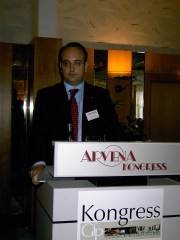
 R: Es una constante contrastada que la llamada “primavera árabe” se ha constituido sobre la alianza política de dos elementos que a priori podrían parecer no compaginables: los liberales occidentalistas y los islamistas moderados y no tan moderados. Hay un tercer factor que ha tenido un protagonismo destacado en la extensión de estas revoluciones árabes la cadena televisiva Al-Yazira, que es mayoritariamente de capital saudí, catarí e israelí.
R: Es una constante contrastada que la llamada “primavera árabe” se ha constituido sobre la alianza política de dos elementos que a priori podrían parecer no compaginables: los liberales occidentalistas y los islamistas moderados y no tan moderados. Hay un tercer factor que ha tenido un protagonismo destacado en la extensión de estas revoluciones árabes la cadena televisiva Al-Yazira, que es mayoritariamente de capital saudí, catarí e israelí.
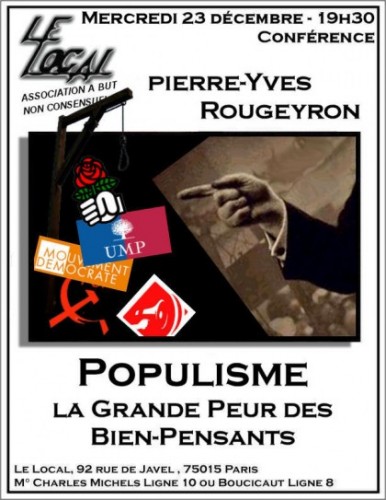


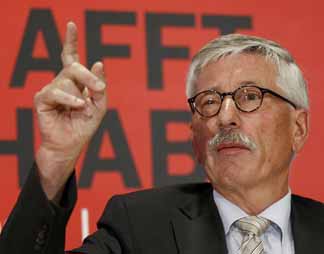
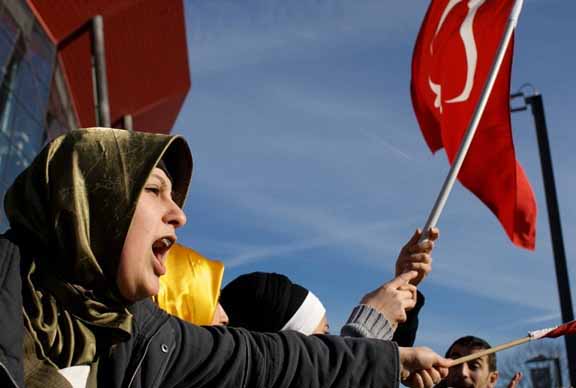

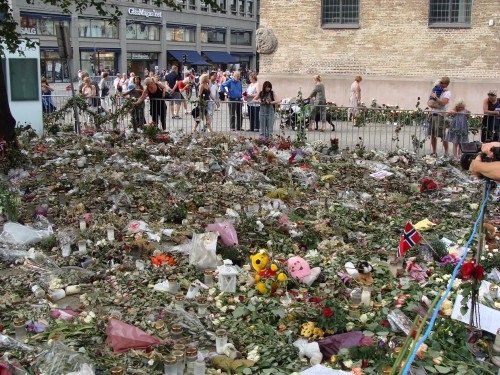
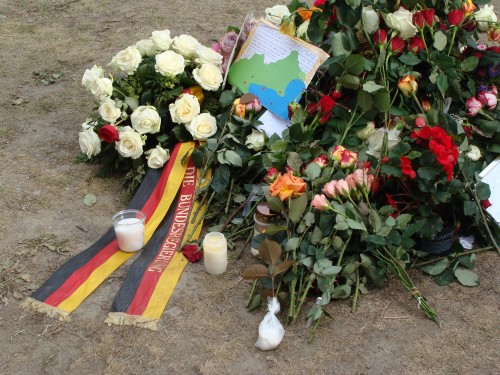
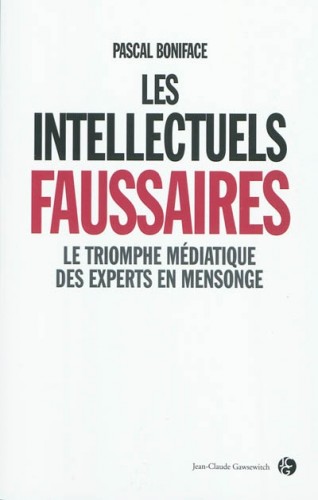
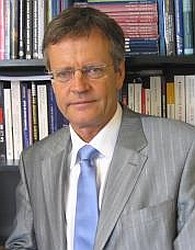 Boniface est resté fidèle à cet engagement socialiste, tout en menant une brillante carrière d’universitaire (il est aujourd’hui enseignant à l’Institut d’études européennes de l’université Paris-VIII) et de consultant. Passé par l’université Paris-I, l’École spéciale militaire de Saint-Cyr Coëtquidan et l’Institut d’études politiques de Paris et de Lille, il crée en 1990 l’Institut de relations internationales et stratégiques (Iris), l’un des meilleurs think tanks français. Il en est le directeur. Auteur d’une quarantaine d’ouvrages, responsable de l’Année stratégique et du trimestriel la Revue internationale et stratégique, il est aussi, pour une autre passion, le secrétaire général de la Fondation du football.
Boniface est resté fidèle à cet engagement socialiste, tout en menant une brillante carrière d’universitaire (il est aujourd’hui enseignant à l’Institut d’études européennes de l’université Paris-VIII) et de consultant. Passé par l’université Paris-I, l’École spéciale militaire de Saint-Cyr Coëtquidan et l’Institut d’études politiques de Paris et de Lille, il crée en 1990 l’Institut de relations internationales et stratégiques (Iris), l’un des meilleurs think tanks français. Il en est le directeur. Auteur d’une quarantaine d’ouvrages, responsable de l’Année stratégique et du trimestriel la Revue internationale et stratégique, il est aussi, pour une autre passion, le secrétaire général de la Fondation du football.

